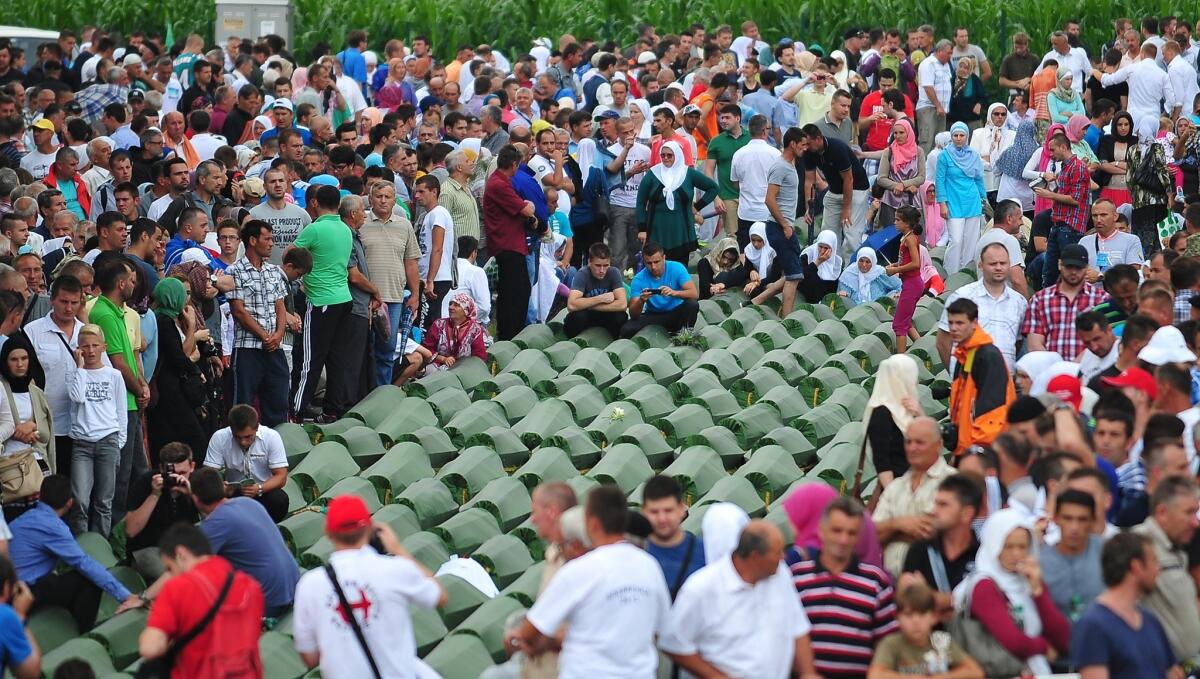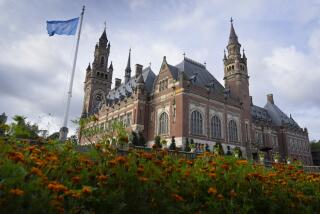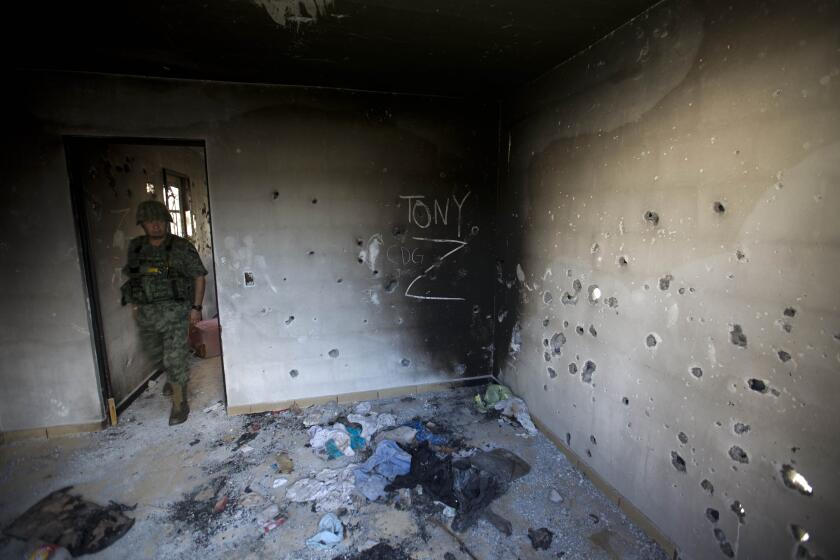War crimes court restores genocide charge against Karadzic

The U.N. war crimes tribunal for the former Yugoslavia reinstated a charge of genocide against wartime Bosnian Serb leader Radovan Karadzic on Thursday, reversing a trial court’s ruling that prosecutors hadn’t made a convincing case that the Serb nationalist “possessed genocidal intent.”
The decision by a five-judge appeals panel coincided with a solemn ceremony in the Bosnian town of Srebrenica, where the recently identified remains of 409 victims of Europe’s worst massacre since World War II were reburied. Karadzic and Bosnian Serb army commander Gen. Ratko Mladic face charges in their concurrent war crimes trials for their alleged roles in orchestrating the July 11, 1995, killings of more than 8,000 Muslim men and boys.
At the U.N. court in The Hague, Netherlands, the appeals panel’s chief judge read out its decision reversing the ruling a year ago that prosecutors had failed to present compelling evidence that Karadzic plotted to exterminate Muslims and Croats during the 1992-1995 war.
In their ruling posted on the tribunal’s website, the appellate judges cited evidence presented by the prosecution last year that Karadzic took part in meetings where “it had been decided that one-third of Muslims would be killed, one third would be converted to the Orthodox religion and a third will leave on their own,” purging the proclaimed state of Republika Srpska of all Muslims.
Karadzic was also involved in subjecting Muslim captives to inhumane and physically destructive conditions, packing hundreds in single rooms, denying them food and water and depriving them of toilets or bathing facilities, causing the spread of disease and death, the appellate judges noted.
Karadzic, 68, who has been at the tribunal detention facility since his 2008 capture, now faces the restored charge of genocide when the defense phase of his trial resumes. He also faces 10 other charges of crimes against humanity and violations of the laws of war. He faces a maximum sentence of life imprisonment if convicted.
Karadzic and Mladic are among 25 Balkan war crimes suspects detained at The Hague, and their trials are being closely watched by survivors of the conflict that took at least 100,000 lives. Proceedings have been concluded against another 136 suspects by the court, which has succeeded in serving all 161 of its indictment warrants since its formation two decades ago.
Slobodan Milosevic, the Serbian nationalist blamed for masterminding the atrocities in a bid to “ethnically cleanse” territory claimed as Serb heritage, died in The Hague prison in 2006 midway through his trial.
ALSO:
U.S., China begin strategic and economic talks
In Syria, no letup in fighting as Ramadan begins
Global Voices: VW van bio tracks groovy rides to the far reaches
More to Read
Sign up for Essential California
The most important California stories and recommendations in your inbox every morning.
You may occasionally receive promotional content from the Los Angeles Times.











